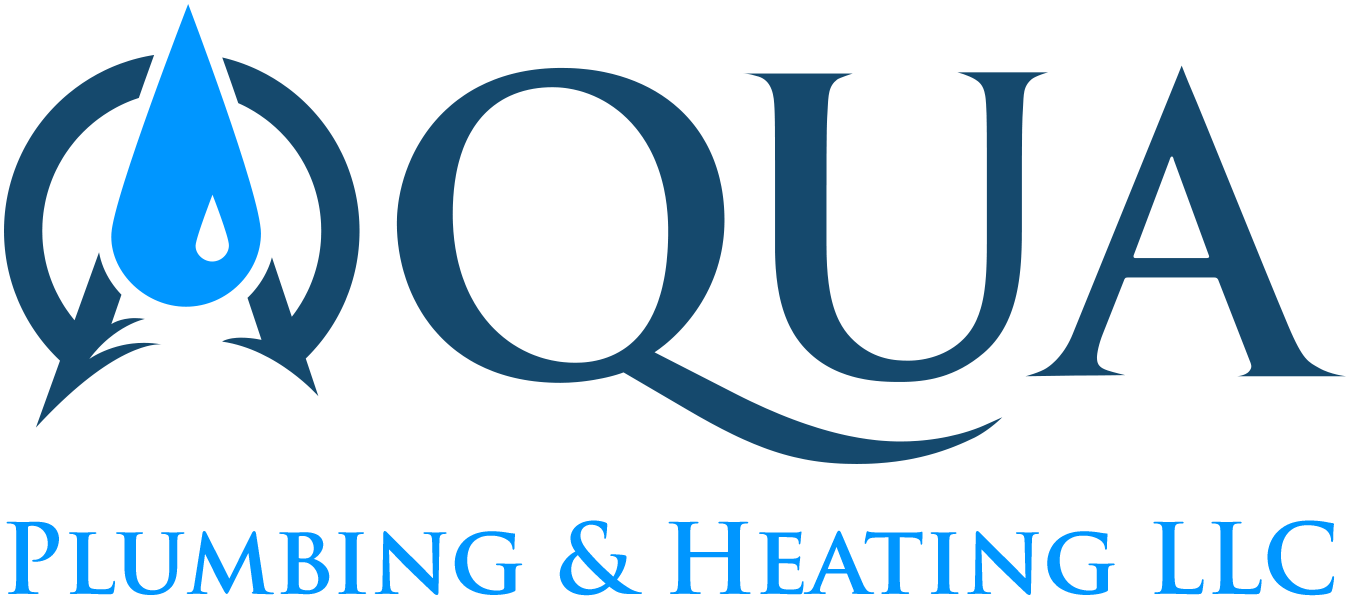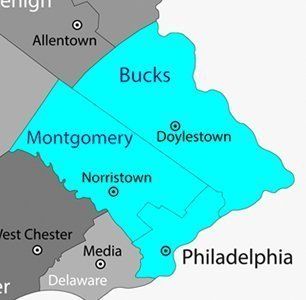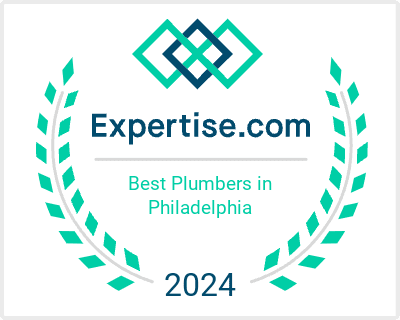Avoid a Plumbing Disaster: 5 Warning Signs It's Time to Call Aqua Plumbing
7055183496 • May 20, 2025
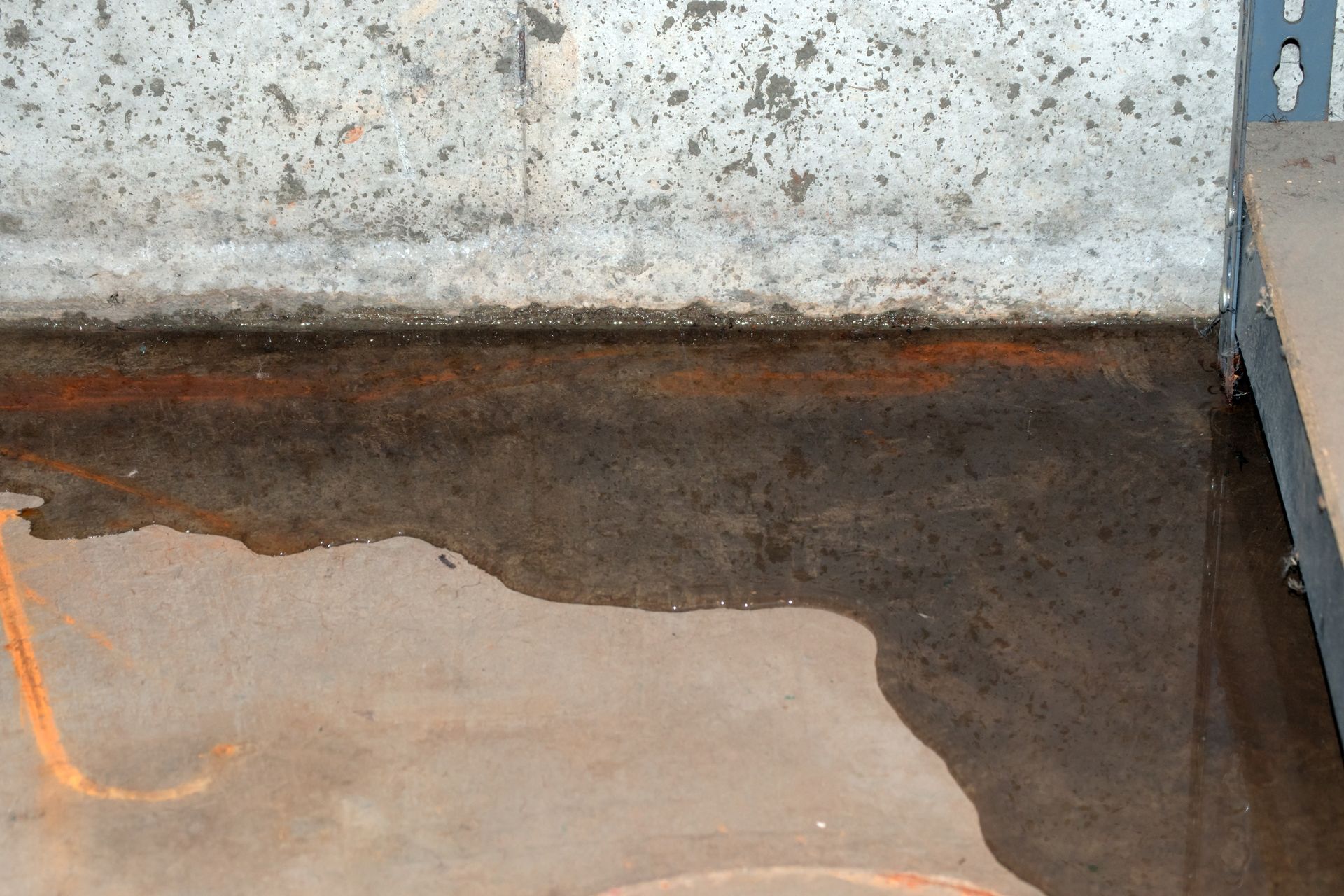
Plumbing emergencies rarely happen out of the blue. More often than not, your home tries to warn you -- slow drains, strange noises, damp walls -- you just have to know what to look (and listen) for.
At Aqua Plumbing & Heating, LLC., we believe in prevention, not panic. Catching these issues early can save you thousands in repairs, protect your property, and give you peace of mind.
Here are the top 5 signs it's time to call Aqua Plumbing & Heating, LLC., before a small problem turns into a plumbing nightmare.
1. Slow-Draining Fixtures
Is your kitchen sink taking longer than usual to drain? Does your shower fill up like a bathtub? These are signs that buildup -- like grease, hair, soap scum, or even tree roots -- is clogging your pipes.
Why It Matters: If ignored, slow drains can lead to full blockages, burst pipes, or sewage backups.
Aqua's Solution: We use professional-grade snaking and hydro-jetting to break through even the toughest blockages -- restoring full, clean flow to your system.
2. Gurgling or Bubbling Noises
If your drain gurgles like a coffee maker or bubbles after flushing, something's off. These sounds often mean air is trapped due to a blockage or venting issue in your plumbing.
Why It Matters: Gurgling could be the early warning sign of a major sewer backup waiting to happen.
Aqua's Solution: We perform a camera scope inspection to find and fix the obstruction before it becomes a full-blown emergency.
3. Unexplained Moisture or Water Damage
Damp walls, floors, ceilings -- or worse, visible water spots with no clear source -- can be signs of a hidden leak or cracked drain line beneath your foundation.
Why It Matters: Hidden leaks don't just waste water -- they lead to mold growth, rotting wood, and costly structural damage.
Aqua's Solution: We'll locate the leak quickly and repair it using safe, code-compliant techniques -- minimizing damage and future risk.
4. Foul Odors from Your Drains
if you're smelling rotten eggs or sewage near your sinks, showers, or basement drains, it's not something to ignore. Those odors could be caused by decaying organic material or a damaged sewer line.
Why It Matters: Sewer gas isn't just unpleasant -- it can be hazardous to your health and your home's air quality.
Aqua's Solution: Our team will clear out the buildup and repair damaged pipes to eliminate odors and restore safety.
5. Frequent or Recurring Clogs
Do you keep reaching for the plunger every few weeks? That's not normal -- and store-bought solutions aren't fixing the root of the problem.
Why It Matters: Ongoing clogs could mean pipe corrosion, misaligned joints, invasive roots, or collapsed lines -- none of which are DIY fixes.
Aqua's Solution: We'll get to the bottom of it with diagnostic tools and long-lasting solutions that prevent repeat blockages.
Why Call Aqua Plumbing & Heating, LLC., Sooner, Not Later?
Delaying service turns a $350 fix into a $3500 emergency. Our team is fast, professional, and ready to handle anything from small leaks to full sewer replacements.
When you call Aqua Plumbing & Heating, LLC., you get:
• Honest recommendations (no upselling)
• Licensed and insured technicians
• Emergency services available
• Advanced equipment
Call us at 2676008159
Serving Philadelphia and Surrounding Areas
Protect your home. Avoid the flood.
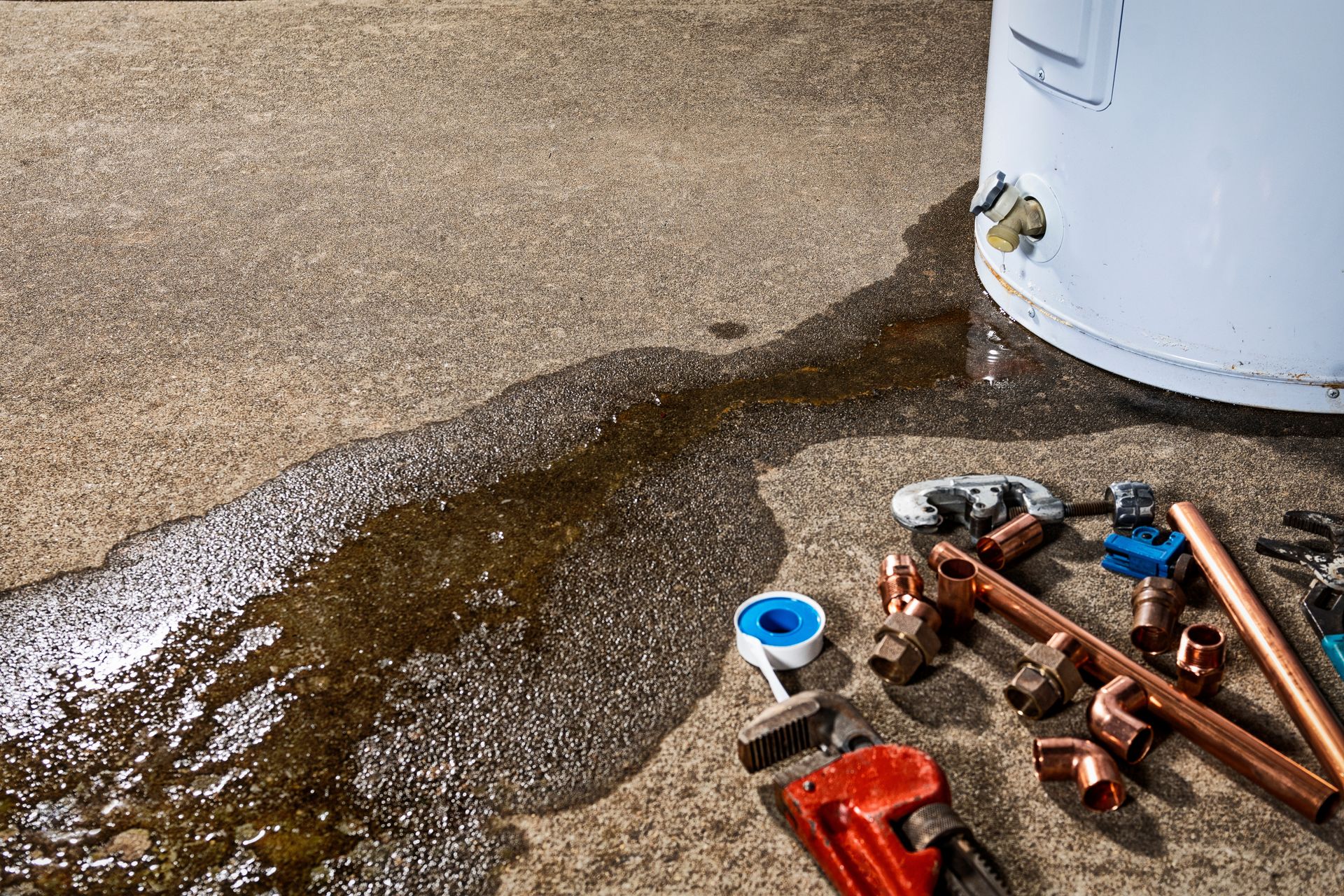
It's easy to ignore that small drip or strange HVAC noise -- life gets busy, and it doesn't seem like an emergency. But when it comes to plumbing or HVAC issues, waiting can be one of the most expensive mistakes a homeowner can make. At Aqua Plumbing & Heating, LLC., we've seen firsthand how small problems can turn into big disasters. A minor leak can become a flood. A worn-out HVAC part can cause your entire system to fail -- often when you need it most. Here's what really happens when you delay repairs: 1. Small Problems Become Big Expenses That tiny leak or inconsistent airflow might feel manageable now, but over time it wears down your system. A quick fix today could save you from a full replacement tomorrow -- whether it's pipes, water heater, or entire HVAC systems. And yes, that could mean thousands of dollars in preventable costs. 2. Higher Utility Bills Every Month Leaks and inefficiencies don't just sit quietly -- they drain your resources. A constantly running toilet, a hidden drip, or an overworked AC unit can drive your water and energy bills through the roof. If your systems are working harder than they should, you're paying more every single month. 3. Risk of Property Damage & Mold Water damage spreads fast -- behind walls, under floors, and into the structure of your home. Left unchecked, it leads to warped wood, ruined drywall, and dangerous mold. What starts as a nuisance can end in costly repairs and serious health risks, especially for children or those with allergies or asthma. 4. Emergencies Come With a Price Plumbing and HVAC emergencies don't wait for a convenient time. They happen in the middle of the night, during holiday dinners, or on the hottest day of the year. And when they do, you're looking at higher emergency service costs, more stress, and limited options. Take control before it gets worse. The good news? You can avoid all of this with one simple step: Don't delay . Get ahead of the problem with a timely inspection or repair. At Aqua Plumbing & Heating, LLC., our licensed experts provide: • Thorough diagnostics and honest recommendations • Affordable, no-pressure repair options • Fast, friendly service you can rely on Protect your home and your peace of mind. Call us today or book your inspection online.
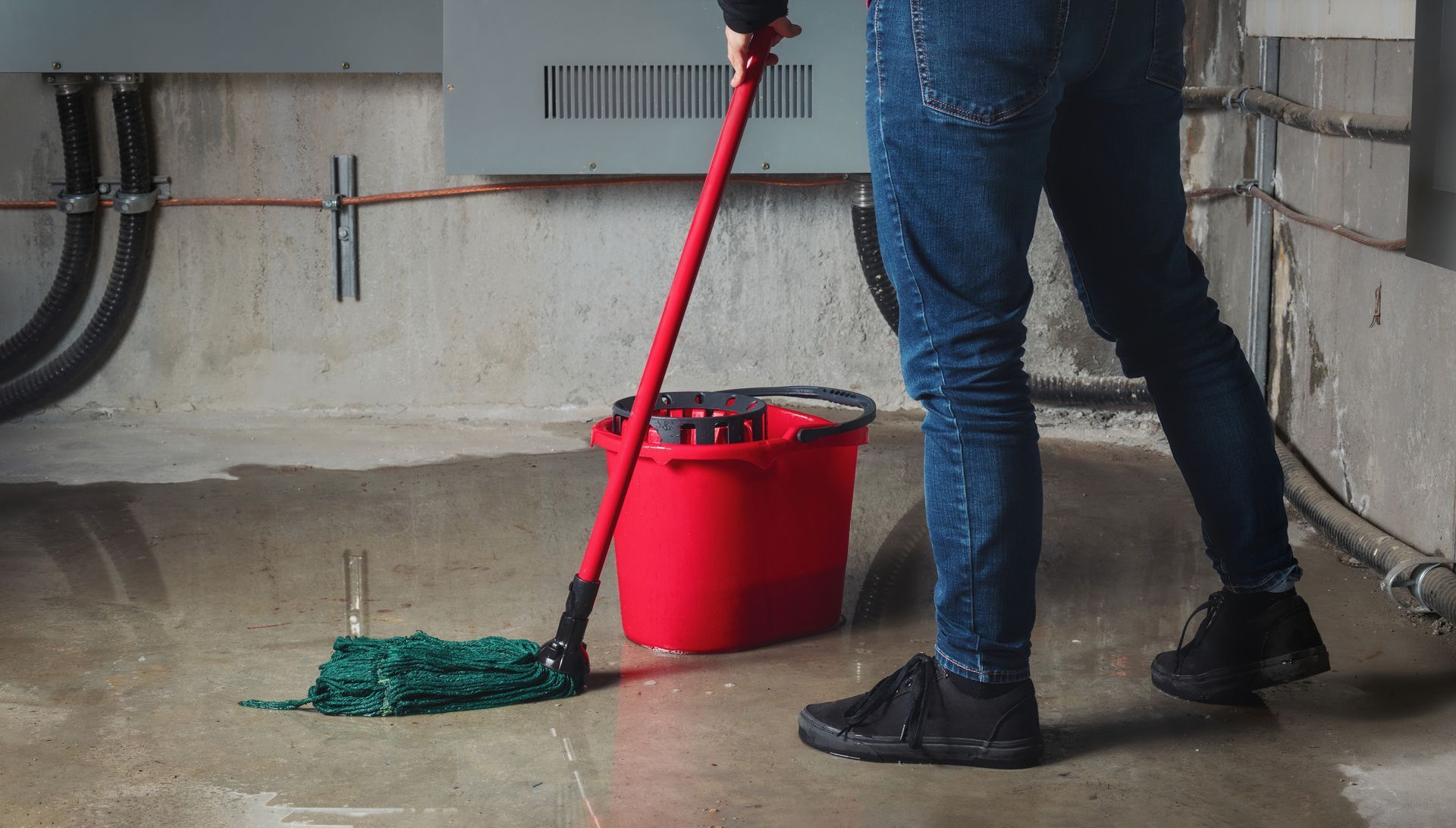
Plumbing disasters don't wait for business hours -- and neither do we. Whether it's a burst pipe at 2AM or a sewer backup during a storm, Aqua Plumbing & Heating, LLC., is ready to respond, 24/7. We proudly serve homeowners and property managers across Philadelphia and surrounding areas with reliable, round-the-clock emergency plumbing services. Common Plumbing Emergencies We Handle: • Burst pipes & major leaks • Overflowing toilets • Sewer backups & clogged drains • Flooded basements & sump pump failures • Water heater breakdowns • Suspected gas line leaks (call 911 first -- then us) Why You Should Save Our Number: Plumbing problems escalate fast. Every minute matters when water is flooding your home or sewage is backing up. Having our number saved means no scrambling, no searching -- just help, fast. Why Philly Trusts Aqua Plumbing & Heating, LLC.: • True 24/7 Emergency Service -- Nights, weekends, and holidays • Fast local response throughout Philadelphia & nearby suburbs • Licensed, insured, & experienced pros who get the job done right • Fully stocked trucks to solve the problem on the spot • Upfront pricing & clear communication -- no guesswork, no games • Code-compliant, lasting repairs you can count on Heads-Up: Emergency Rates Apply We believe in transparency -- emergency rates apply for after-hours, weekends, and holiday urgent calls. But you'll always know the price before we begin. Be Ready Before the Next Emergency Strikes! Don't wait until your basement is flooding to find a plumber. Save our number now, share it with tenants or family members, and rest easy knowing help is just a call away. (267)600-8159 www.aquaplumbingandheatingllc.com Proudly serving Philadelphia and surrounding communities.
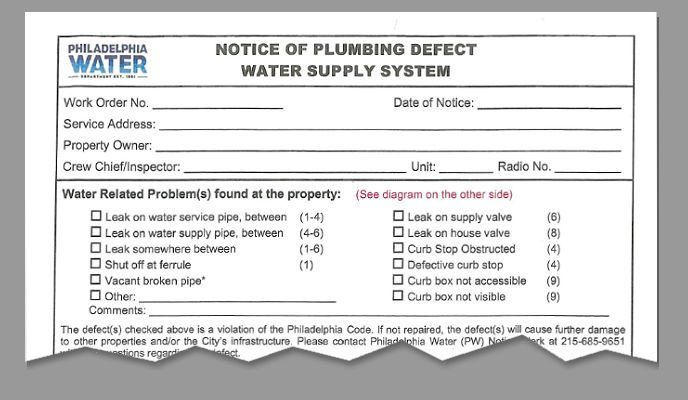
If you've received a plumbing or sewer violation notice from the City of Philadelphia, don't stress -- Aqua Plumbing & Heating, LLC., has your back. We specialize in quick, affordable solutions for property owners and managers facing city-issued violations, from curb trap issues to damaged laterals and more. With decades of experience handling city permits, inspections, and repairs, we make the process simple, smooth, and code-compliant -- so you can move forward with confidence. Common City Violations We Resolve: ✔️Defective or collapsed curb traps ✔️ Broken or missing fresh air inlets ✔️ Damaged or blocked sewer laterals ✔️ Out-of-code vent boxes ✔️ Improper drainage connections ✔️ Failed dye tests ✔️ Water supply line replacements and repairs Whether your violation came from a routine inspection, real estate transaction, or emergency backup, we'll handle it from start to finish -- permits, repairs, and final inspection included. Why Homeowners & Property Managers Trust Aqua Plumbing & Heating, LLC.: ✔️ Fully licensed and insured for plumbing and excavation services ✔️ We handle all permits, paperwork, and city inspections ✔️ Years of experience working with L & I and the Philadelphia Water Department ✔️ Clear communication and upfront pricing -- no surprises ✔️ Quick response times to avoid fines, delays, or shutdowns ✔️ Professional camera scope inspections and written reports included Don't wait -- violations can lead to fines, delays, or water shutoffs! We get it -- dealing with the city isn't always easy. That's why our team makes it simple: we diagnose the problem, complete the work to code, and get your violation cleared fast and professionally. Call Aqua Plumbing & Heating, LLC., today at (267)6008159 Www.aquaplumbingandheatingllc.com/book-online Proudly serving Philadelphia and surrounding areas. City violations? No worries. Let Aqua Plumbing & Heating, LLC., handle it -- fast, clean, and up to code.
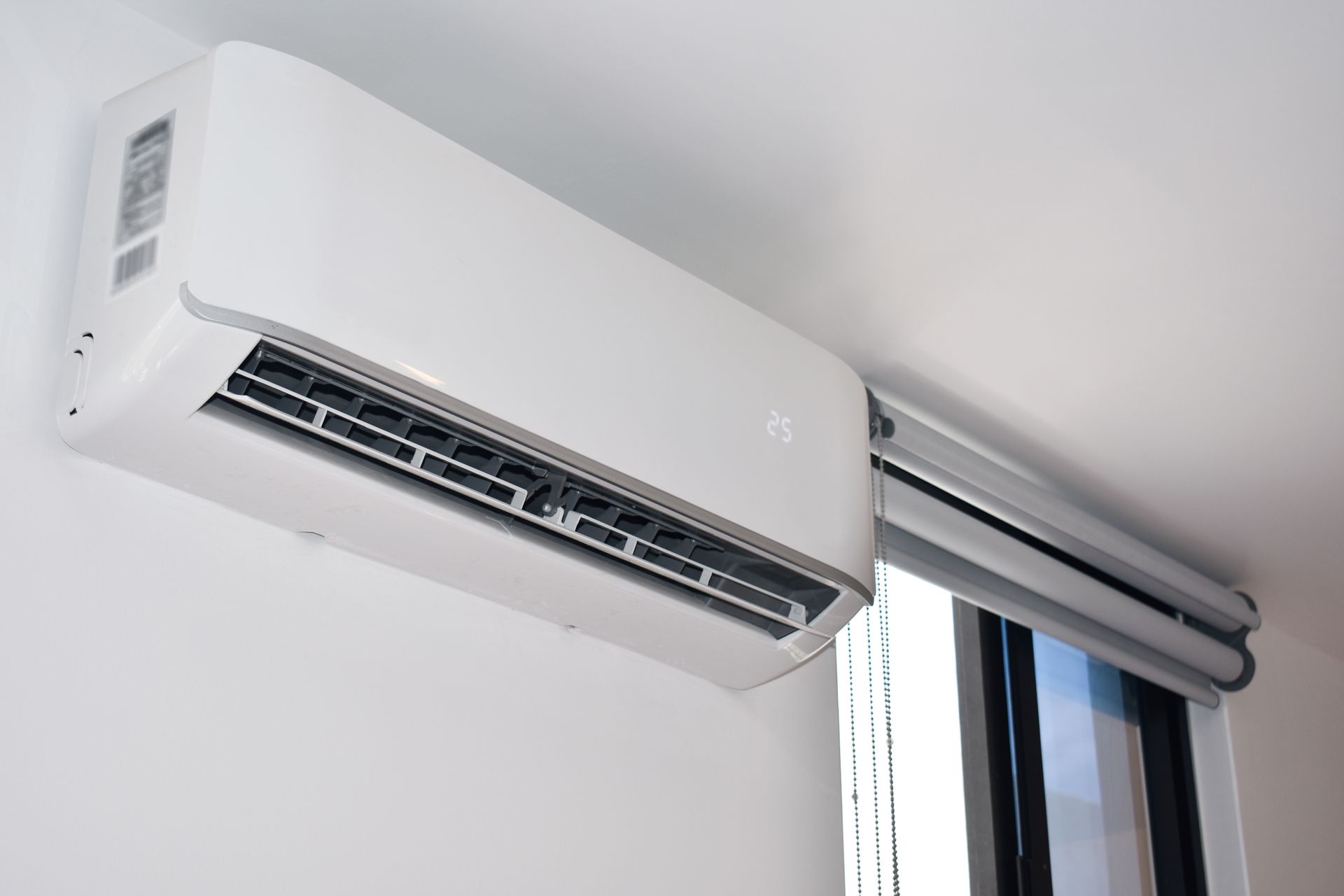
When summer hits, it doesn't mess around -- and neither should your cooling system. If you're stuck with clunky window units, high energy bills, or rooms that never cool down, it's time to upgrade your comfort. Aq Aqua Plumbing & Heating, LLC., we're helping homeowners in the Philadelphia and surrounding areas stay cool, save money, and enjoy total comfort with professional mini-split AC installations -- the smarter way to beat the heat. What's a Mini-Split Anyway? A mini-split system (a.k.a. ductless AC or ductless heat pump) is a super-efficient, modern cooling (and heating) solution that works without any ductwork. That makes it perfect for older homes, additions, or anywhere traditional HVAC just doesn't work well. It includes: • A sleek indoor unit (mounted on a wall or ceiling) • A quiet indoor compressor • A small conduit line connecting the two -- discreet, clean, and easy to install Why More Homeowners Are Going Ductless: Lower-Energy Bills Mini-splits use inverter technology, adjusting power based on your needs -- which means no waste and serious savings compared to central air or window units. Room-by-Room Control Only need to cool the bedroom at night? Done. Want the home office chilly during the day? Easy. Get custom comfort by zone, and never pay to cool rooms you're not using. No Ducts, No Problems Got and older rowhome, converted attic, garage apartment, or finished basement? Mini-splits are ideal where ductwork doesn't exist or just isn't practical. Whisper-Quiet & Sleek Say goodbye to noisy fans and bulky AC boxes. Mini-splits are modern, efficient, and nearly silent -- perfect for bedrooms, nurseries, and offices. Why Choose Aqua Plumbing & Heating, LLC.? We're not just great plumbers -- we're HVAC experts with years of experience installing mini-split systems across the Philadelphia and surrounding areas. When you work with Aqua, you get: • Correct system sizing and design • Certified installation -- done right the first time • Trusted brands • Transparent pricing, financing options, and fast service • Ongoing support and maintenance when you need it Whether you need one zone or a whole-home solution, we'll customize the system that's right for your space, your comfort, and your budget. Ready to Cool Smarter This Summer? The sooner you upgrade, the sooner you'll feel the difference -- in comfort and in your utility bill. Don't sweat through another summer with loud fans and sky-high energy costs. Call Us: 2676008159 Cooler rooms. Cleaner air. Lower bills. No ductwork. Make the switch to a mini-split system with Aqua Plumbing & Heating, LLC. -- and chill out in comfort all year long.

Clogged drains are more than just a nuisance -- they can disrupt your day, cause costly water damage, and even signal bigger plumbing problems lurking underground. At Aqua Plumbing & Heating, LLC., we specialize in two powerful solutions: snaking and hydro-jetting. But which one is right for your situation? Let's dive into the details so you can make an informed decision -- or better yet, let us do it for you. What is Drain Snaking? Drain snaking (also called augering) involves feeding a flexible metal cable with a corkscrew-like tip into your pipes. The goal? To break apart or retrieve whatever is clogging the drain. Best For: • Minor clogs caused by hair, soap, food scraps, or paper • Single fixtures like tubs, sinks, or shower drains • Older plumbing systems that can't handle high pressure Limitations: • May only create a hole through the clog -- not removing it entirely • Doesn't clean the full interior of the pipe • Won't clear out thick grease, sludge, or invasive tree roots What is Hydro-Jetting? Hydro-jetting uses highly pressurized water to blast away years of buildup inside your drain and sewer lines -- including grease, soap scum, roots, and mineral scale. Best For: • Grease-heavy kitchen lines and commercial drains • Recurring clogs that keep coming back • Sewer line blockages and main drain backups • Tree root intrusion • Thorough, long-term pipe cleaning Considerations: • Not safe for old, cracked, or fragile pipes • A camera inspection is recommended before hydro-jetting • Requires trained, licensed professional to operate safely When to Use Which Method Situation Best Method Slow draining bathroom sink Snaking Kitchen line with grease clogs Hydro-Jetting Repeated clogs in same drain Hydro-Jetting Hair buildup in shower drain Snaking Basement or main sewer line backup Hydro-Jetting Older or fragile plumbing Snaking (with care) Why You Should Call the Pros at Aqua Plumbing & Heating, LLC. DIY fixes can be tempting -- but store-bought snakes and liquid drain cleaners only treat the symptom, not the cause. For a long-lasting solution, trust the experts at Aqua Plumbing & Heating, LLC.: ✓ Camera inspections to find the true source of your clog ✓ Honest guidance on whether to snake or hydro-jet ✓ Advanced equipment operated by trained technicians ✓ Emergency services available when you need it most ✓ No guesswork -- just results Choose Aqua Plumbing & Heating, LLC., for Clean, Flowing Drains We don't just clear clogs -- we restore your peace of mind. Whether you need a simple snaking or a full hydro-jetting service, Aqua Plumbing & Heating, LLC., is here to help with expert care and exceptional service. Call us today: 267-600-8159 Visit our website: Www.aquaplumbingandheatingllc.com Proudly serving Philadelphia, Bucks, Montgomery, and Delaware Counties Hydro-jet or snake? Let us inspect, assess, and recommend the solution that's best for your plumbing system -- and your budget.
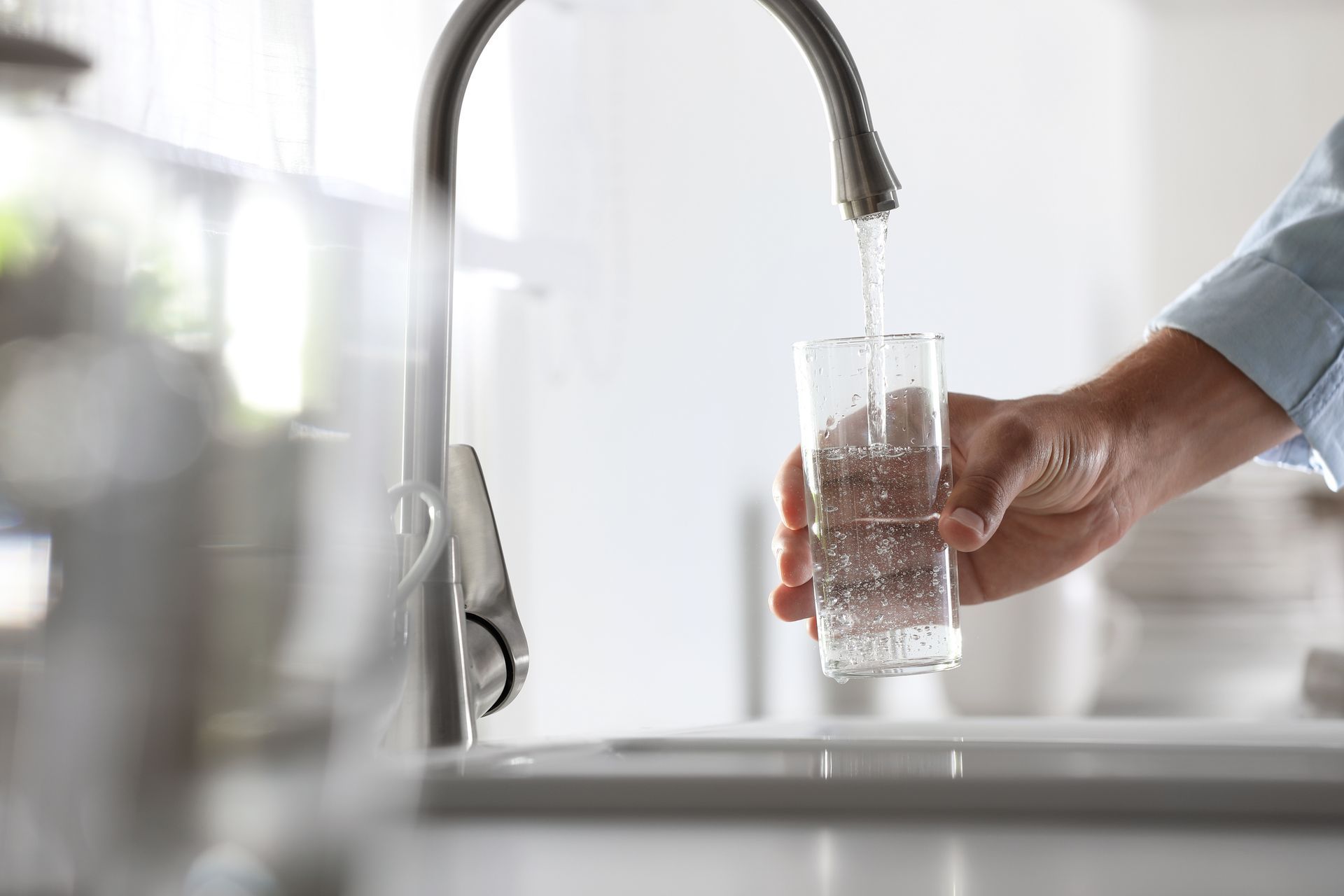
Ever experienced the puzzling moment when you turn on your tap and out comes cloudy water? It's a common occurrence that, while unsettling, has a range of explanations. In this blog, we'll uncover the potential reasons behind cloudy tap water, exploring whether it's a transient issue or something more substantial that warrants attention. Deciphering the Cloudiness: Cloudy tap water, often resembling a milky or white hue, can be linked to various factors. Here are some key contributors: 1. Air Bubbles: Tiny air bubbles can cause temporary cloudiness, especially in cold water. Dissolved gases are released as the water warms up, forming bubbles that create the cloudy appearance. 2. Mineral Content: High mineral content, notably calcium and magnesium, may lead to cloudiness. These minerals can precipitate out of the water, resulting in a hazy appearance, commonly referred to as "hard-water". 3. Temperature Fluctuations: Rapid changes in water temperature can release dissolved gases and minerals, contributing to temporary cloudiness. This phenomenon is more noticeable during colder months with fluctuating water temperatures. 4. Water Pressure: Elevated water pressure can introduce air into the water supply, causing transient cloudiness. This is typically observed during sudden pressure increases, such as during repairs or maintenance in the water supply system. When To Raise An Eyebrow: While cloudy tap water is often harmless and short-lived, there are instances where it might signal a more significant issue: 1. Microbial Contamination: Persistent cloudiness accompanied by an unpleasant odor could indicate microbial contamination. In such cases, prompt water testing for bacteria and contaminants is crucial. 2. Pipe Corrosion: Cloudy water with a metallic taste may point to pipe corrosion, releasing rust particles into the water. Addressing this situation promptly is essential to mitigate the potential health risks. Taking Action: 1. Observe Changes: If the cloudiness is sudden and persistent, pay attention to changes in taste, smell, or color. These indicators can offer clues to the potential cause. 2. Run the Tap: Allowing the tap to run for a few minutes can sometimes clear temporary cloudiness caused by trapped air or mineral precipitation. 3. Contact Your Water Provider: If concerns persist, reach out to your local water provider. They can offer insights into water quality in your area and address any reported issues. Cloudy tap water is a prevalent occurrence with diverse explanations, ranging from benign to potentially concerning. Understanding the causes and recognizing when to seek further investigation ensure your water remains safe and clear. When in doubt, consulting your local water authority or arranging quality testing with Aqua Plumbing & Heating, LLC., can provide you with a peace of mind and uphold continued safety of your drinking water.
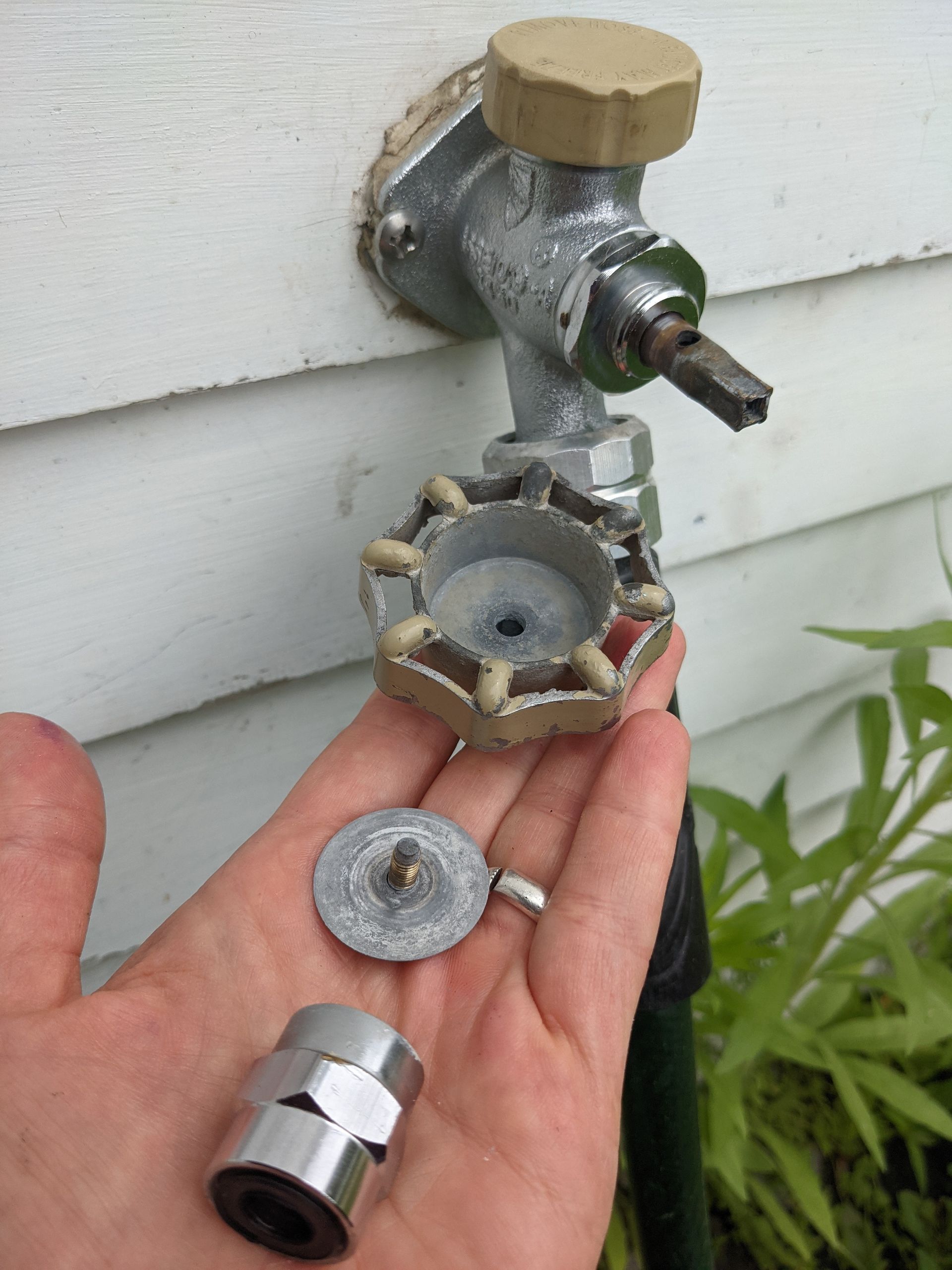
A leaking hose bib not only wastes water but can also lead to increased bills and potential property damage. The good news is that fixing it can be a simple DIY task that requires minimal effort. In this blog, we will guide you through straightforward steps to repair a leaking hose bib, giving you the confidence to address this common issue efficiently. Materials You Will Need: • Adjustable wrench • Pipe wrench • Pipe thread tape • Replacement hose bib (if necessary) Step One: Turn off the water supply and locate the water shut-off valve that is connected to the leaking hose bib, turning it clockwise to shut off the water supply. If a dedicated shut-off valve is not found, turn off the main water supply to your property. Step Two: Remove the hose bib handle using an adjustable wrench loosening and removing the hose bib handle to expose the stem assembly. Step Three: Inspect the washer and the O-ring that is located inside of the hose bibs stem assembly for wear and damage. If needed, replace them with new ones of the correct size and type. Step Four: Apply a few layers of pipe thread tape clockwise around the threads of the hose bib's stem assembly to create a secure, watertight seal during reassembly. Step Five: Carefully reassemble the hose bib, ensuring all components are in their proper place. Tighten the components using an adjustable wrench. Step Six: Once everything is securely in place, turn on the water supply to the hose bib. Check for any leaks. If issues persist, you may need to consider replacing the entire hose bib. Step Seven: If the leak persists after replacing the washer and O-ring, it might be time to replace the entire hose bib. Use a pipe wrench to remove the old hose bib and install a new one, applying pipe thread tape as needed. Fixing a leaking hose bib is sometimes a quick and straightforward DIY task that can save you money and prevent water wastage. By following the above simple steps, you can efficiently address the issue and enjoy a leak-free outdoor water connection. However, if difficulties arise or the problem persists, consulting the pros at Aqua Plumbing & Heating, LLC., is always a wise option.
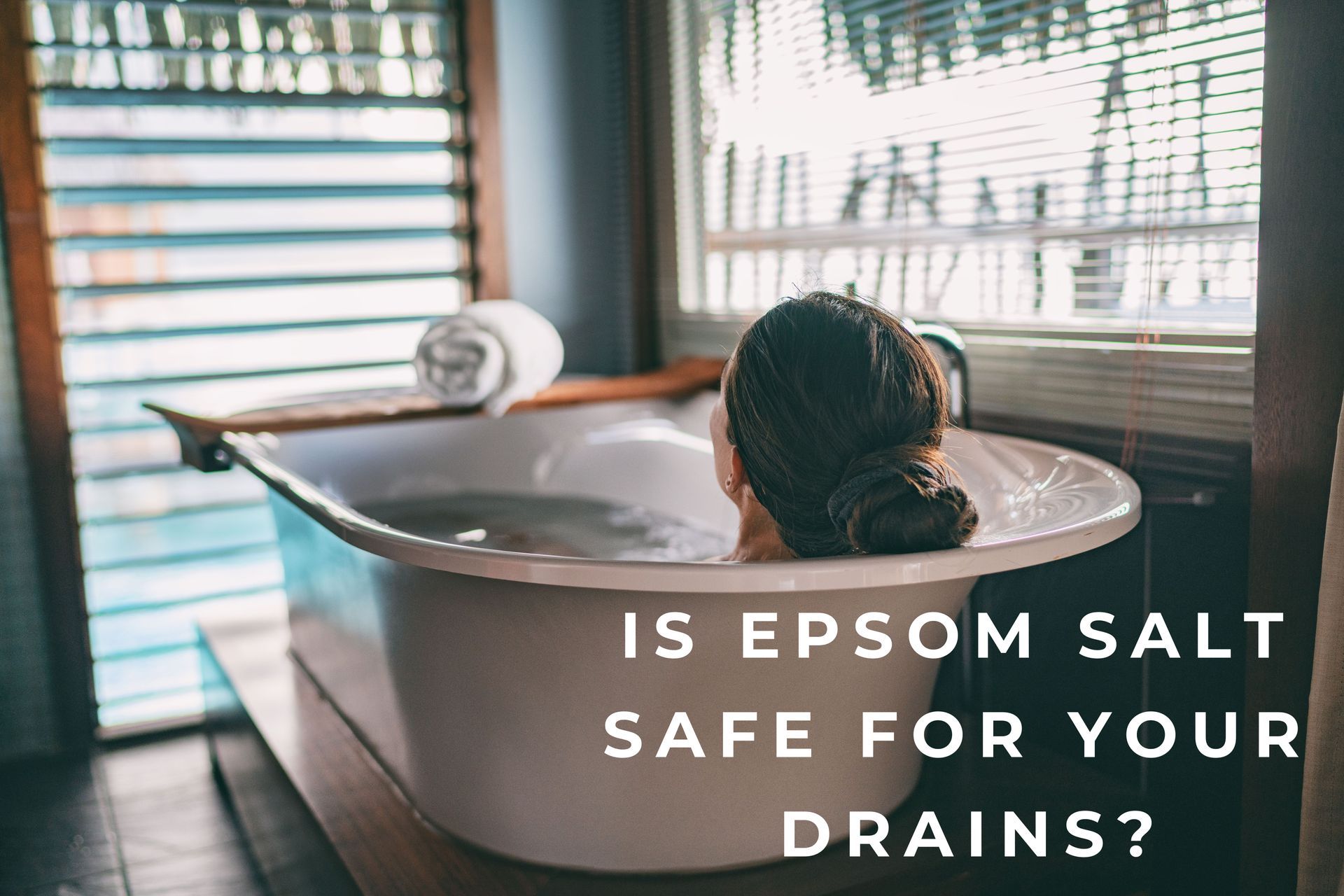
The use of Epsom salt in pipes is a subject that sparks diverse opinions within the plumbing community. While some tout its potential benefits, others issue warnings about its use. In this detailed blog, we will look into both perspectives to provide a comprehensive understanding of how Epsom salt may or may not impact your plumbing system. Potential Benefits of Epsom Salt for Pipes • Softening Water to Prevent Mineral Buildup: Epsom salt, scientifically known as magnesium sulfate, is reputed for its water-softening properties. The belief is that by introducing Epsom salt into the plumbing system, it can reduce the accumulation of mineral deposits, potentially preventing the formation of stubborn hard water deposits in pipes. • Natural Cleaning and Deodorizing: Advocates of Epsom salt contend that it can serve as a natural cleaning agent. They argue that the salt has the ability to break down organic matter within pipes, acting as a gentle yet effective cleaner. Additionally, the deodorizing properties of Epsom salt may contribute to a more pleasant drain aroma. • DIY Drain Maintenance: DIY enthusiasts often incorporate Epsom salt into homemade drain-cleaning solutions. When combined with hot water, the salt is thought to have the ability to dissolve certain types of blockages, offering a DIY alternative for regular drain maintenance. Concerns and Caution Regarding Epsom Salt Use • Potential Residue Buildup: Opponents of Epsom salt usage express concerns about the possibility of residue buildup over time. The argument is that accumulated residue may exacerbate clogging issues, necessitating professional intervention to address the problem effectively. • Limited Scientific Evidence: Despite its widespread use in various applications, there is a lack of robust scientific evidence specifically supporting the efficacy of Epsom salt in maintaining pipes. The perceived benefits remain largely anecdotal, underscoring the need for a cautious approach. • Risk of Corrosion: Critics highlight potential corrosion risks associated with magnesium, a component of Epsom salt. Prolonged exposure to magnesium may contribute to corrosion, particularly in older pipes or systems made of certain materials. Navigating the Epsom Salt Debate in Plumbing: The utilization of Epsom salt in pipes continues to be a debated topic within the plumbing community. While some individuals report positive outcomes, a cautious approach is advised. If contemplating the use of Epsom salt for pipe maintenance, seeking guidance from plumbing professionals tailored to your specific plumbing system and concerns is highly recommended.
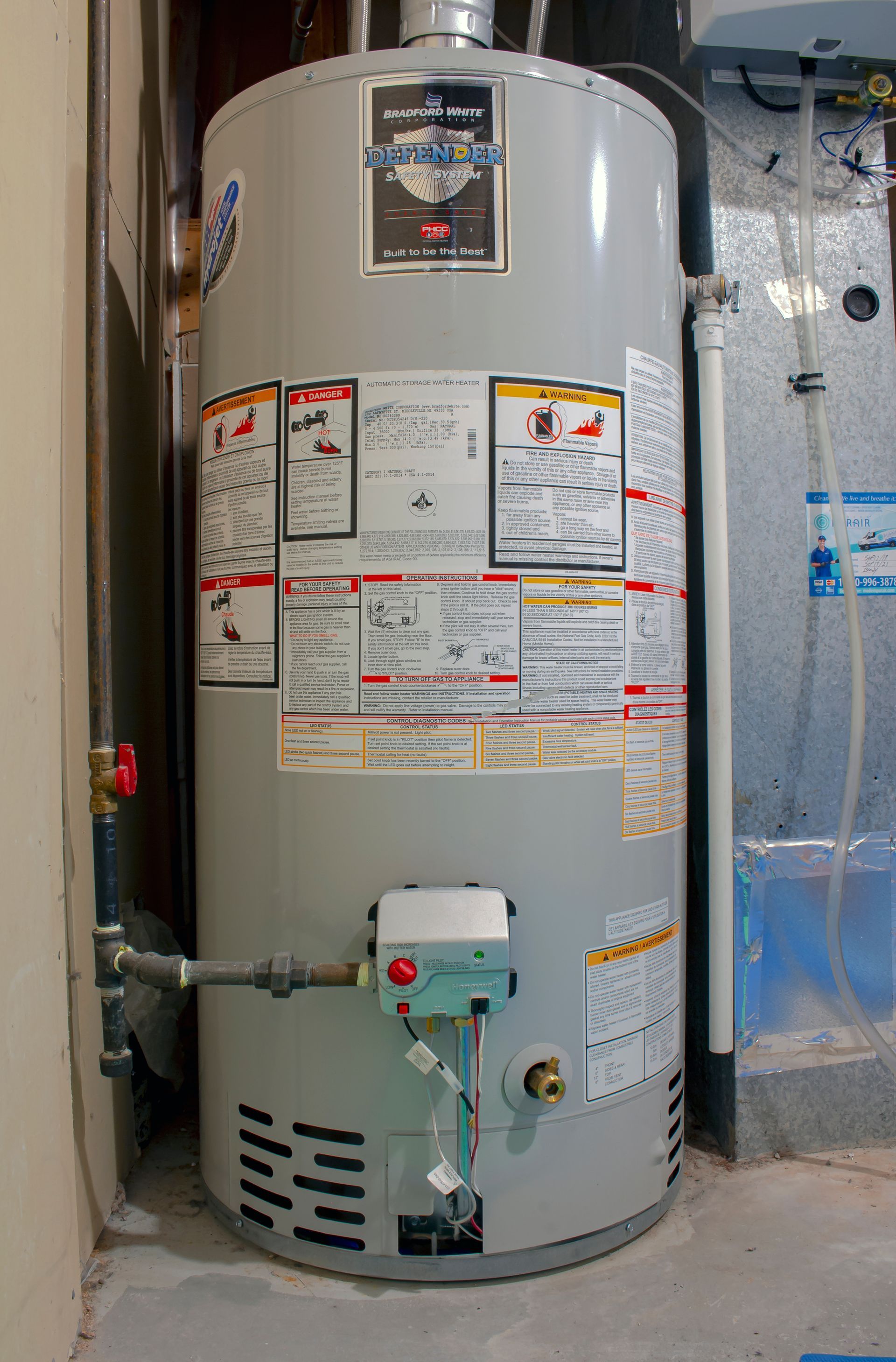
Kickstarting your day with a refreshing shower should be a delight, not a test of patience waiting for hot water. If your water heater seems to be playing hard to get, it's time for a little investigation. Let's dig into the potential culprits causing your water heater to drag its feet and explore practical solutions for a quicker, more efficient hot water experience. Sediment Buildup in the Tank Over the years, sediment, minerals, and debris can form a stubborn layer at the bottom of your water heater tank. This unwanted buildup acts like a thermal blanket, making it challenging for the heating element to operate at its best. Regular tank flushing as part of maintenance can be the key to restoring your water heater's optimal performance. Inadequate Thermostat Settings Take a look at your water heater's thermostat settings to ensure they align with your household's hot water needs. If the thermostat is set too low, your water heater may be taking its sweet time reaching the desired temperature. Adjusting the thermostat to a safe and suitable range, typically around 120 degrees Fahrenheit, can make a noticeable difference. Aging Heating Element The heating element in your water heater doesn't last forever. For electric water heaters, a worn-out heating element may be the culprit, necessitating a replacement. Gas water heaters may experience delays due to issues with the burner or pilot light. Regular checks and timely replacements can keep your water heater in top-notch condition. Water Heater Size and Capacity An undersized water heater can struggle to keep up with the hot water demands of a growing family or changing water usage patterns. If you've outgrown your current setup, upgrading to a larger capacity water heater ensures a timely and plentiful supply of hot water. Plumbing Predicaments Issues with your plumbing system, such as partially closed hot water valve or a misbehaving pressure-reducing valve, can disrupt the smooth flow of hot water. A thorough inspection of your plumbing infrastructure can reveal and remedy any obstructions or faulty components affecting water flow. Professional Inspection and Maintenance When all else fails, calling in the pros at Aqua Plumbing & Heating, LLC., is the smart move. Our licensed team of plumbers can conduct a comprehensive inspection of your water heater, pinpoint the root cause of the delay, and recommend the most effective repairs or replacements to get your hot water flowing seamlessly again. A water heater that takes its time can be a daily annoyance. By promptly addressing potential issues and embracing regular maintenance, you can transform your water heater into a reliable source of immediate, comfortable water heater. If uncertainties persist, don't hesitate to contact Aqua Plumbing & Heating, LLC., to consult with a qualified plumbing professional for advice and solutions crafted to suit your specific situation. Your comfort is our priority!
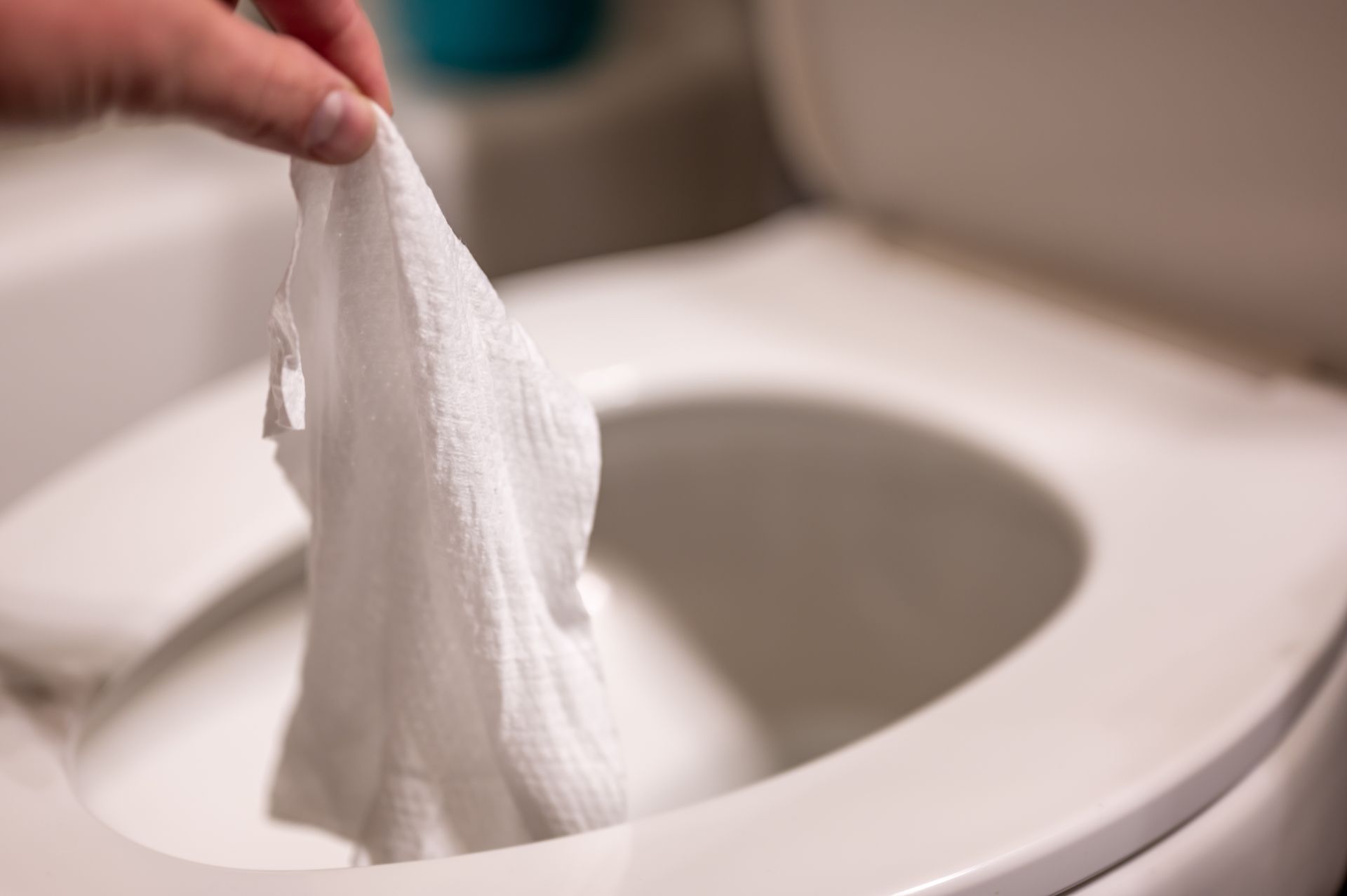
In recent years, flushable wipes have gained popularity as a convenient alternative to traditional toilet paper. However, the safety of flushable wipes for both plumbing systems and the environment has become a subject of extensive debate. Let's explore this topic further to uncover the reality behind the safety claims of flushable wipes. Understanding Flushable Wipes: Flushable wipes are pre-moistened wipes intended for personal hygiene, often marketed as safe for disposal by flushing down the toilet. They're promoted as more effective for cleansing and gentler on the skin compared to dry toilet paper. The Myth of Flushable Wipes: Despite being labeled as "flushable," these wipes raise several safety concerns: Plumbing Issues: Flushable wipes do not disintegrate as quickly as toilet paper, leading to potential accumulation and causing clogs or blockages in household pipes. These issues can extend to municipal sewer systems, resulting in costly repairs and disruptions. Environmental Impact: Unlike toilet paper, which readily dissolves upon contact with water, flushable wipes can persist longer in water systems. They contribute to blockages in sewer lines and pose environmental threats, causing harm to aquatic ecosystems. What Makes Flushable Wipes Unsafe? The safety risks associated with flushable wipes are rooted in their composition and breakdown process: Material Composition: Most flushable wipes are made from non-biodegradable materials like polyester or polypropylene. Unlike toilet paper designed for rapid breakdown in water, these materials do not disintegrate easily, leading to plumbing complications. Misleading Labeling: The term "flushable" can be deceptive. While these wipes can be flushed, their slower breakdown can cause significant problems in plumbing systems, unlike toilet paper engineered for swift disintegration. Risks and Alternatives: Using flushable wipes can pose the following risks: • Plumbing Blockages: Accumulation of wipes in pipes can result in expensive plumbing repairs and inconvenience. • Environmental Concerns: Non-biodegradable wipes contribute to sewage system blockages and adversely affect aquatic environments. Safe Disposal and Alternatives: To mitigate plumbing issues and reduce environmental impact, consider these actions: • Proper Disposal: Instead of flushing, dispose of wipes in the trash to prevent plumbing and sewer complications. • Eco-Friendly Alternatives: Explore biodegradable wipes, specifically designed for safe disposal and minimal environmental impact. Despite being marketed as "flushable," flushable wipes might not be as safe for plumbing or the environment as claimed. Their non-biodegradable composition can lead to clogs and environmental harm. To avert plumbing problems and environmental impact, refraining from flushing wipes and opting for eco-friendly alternatives or toilet paper designed for swift breakdown upon flushing is advisable. Choosing environmentally conscious options ensures both plumbing safety and ecological responsibility.
